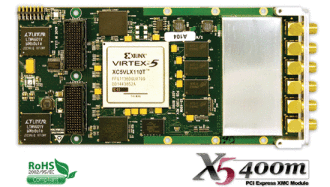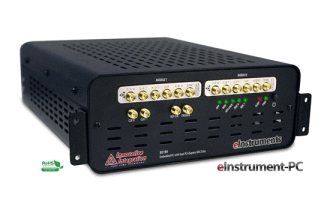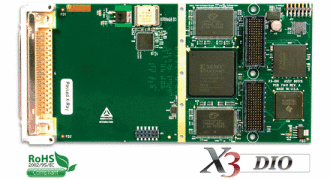


X5-400M XMC Module
eInstrument PC with dual XMC sites
X3-DIO card
Related Products
Skills Used
- Digital Signal Processing algorithms
- Borland C++ under Windows
- Logic design in VHDL
AIS Receiver
Our client needed to record a narrow band AIS Receiver (Automatic Identification System). The Automatic Identification System is an automatic tracking system used on ships and by vessel traffic services (VTS) for identifying and locating vessels by electronically exchanging data with other nearby ships, AIS base stations, and satellites. When satellites are used to detect AIS signatures then the term Satellite-AIS (S-AIS) is used. AIS information supplements marine radar, which continues to be the primary method of collision avoidance for water transport.
eInstrumentPC Solution
The solution had to be portable and airbourne, so the eInstrument-PC was selected and used with a small USB powered LCD monitor. The first XMC site was occupied by a X5-400M, providing two channels of 400MSPS 14 bit A/D’s. Our client added their own digital receiver into the Framework logic of the X5-400M. The second XMC site was occupied by a X3-DIO module which was used to interface to the control ports of the RF receiver that they designed. The X3-DIO has a Spartan3A DSP FPGA, we developed the logic to interface to the PLL’s in the receiver.
Software
Entegra’s engineers developed all of the host software, running under Windows. The software controlled the X5-400M acquisition, analogue receiver and also logged Lat/Long data from the GPS receiver in the eInstrument-PC. The software and firmware was delivered to our client as a complete solution.
